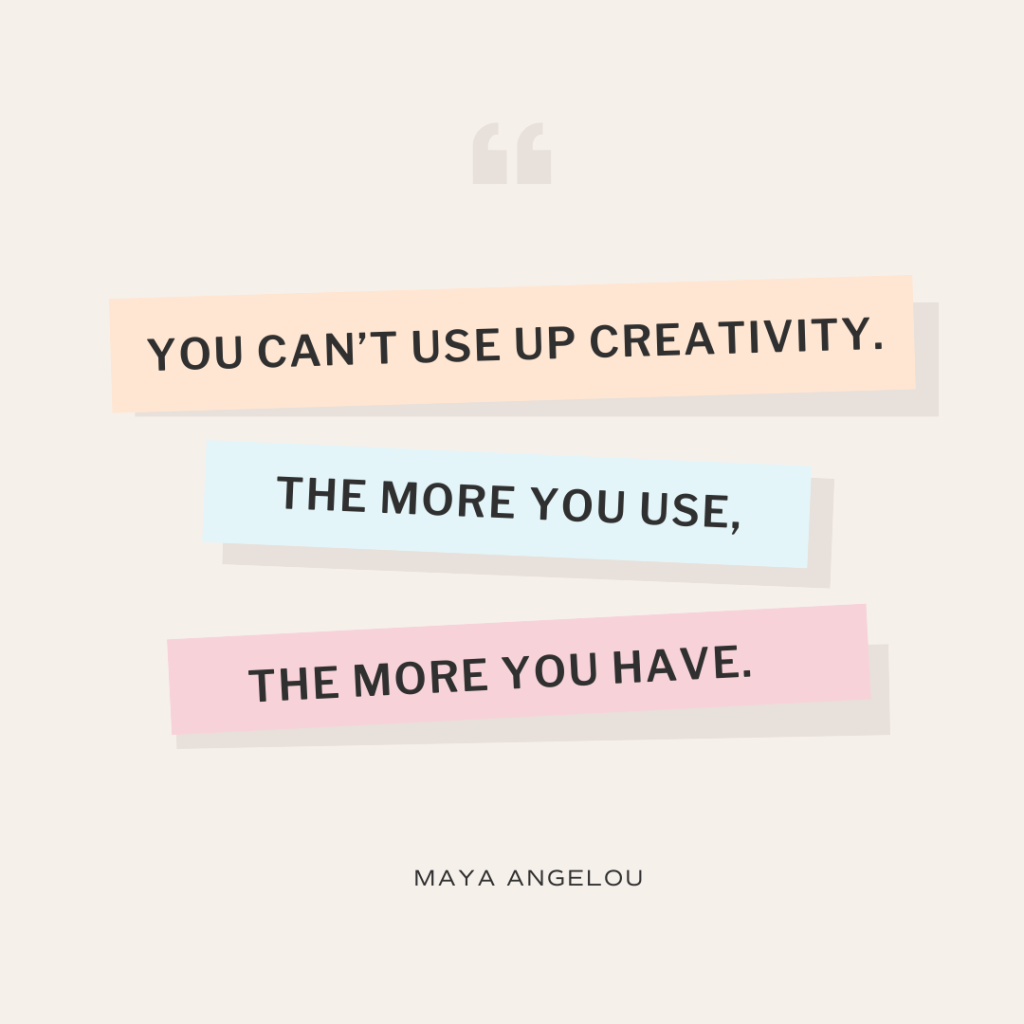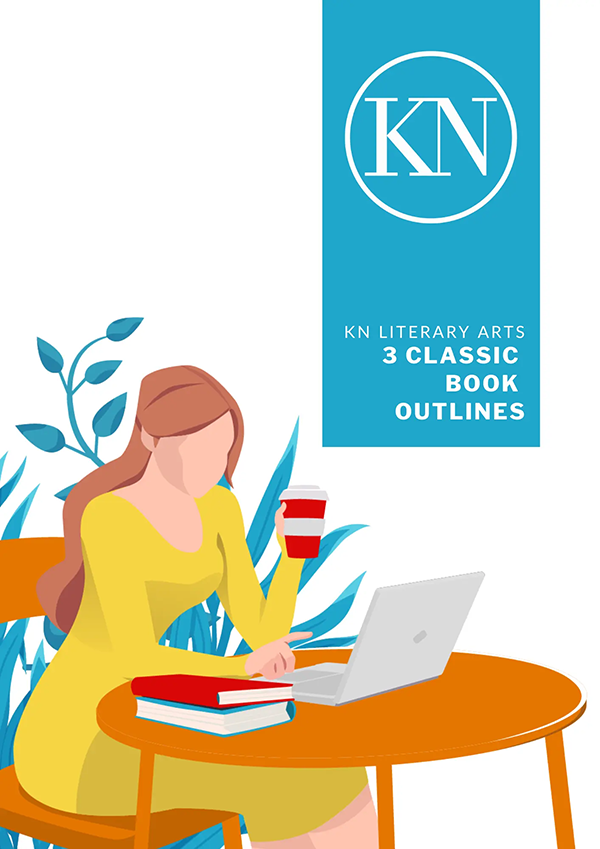I was scrolling through my feed on Instagram when I came across a picture of a pile of journals by bestselling author Elizabeth Gilbert. In the caption she wrote:
“The journals of 2019. My companions, my teachers. Each book is a handprint in time that says: ‘I was here. And I took notes.’ I had some hard times this year. My heart took some big falls. But I’m OK because I wrote and drew and cut and pasted and created and FELT my way through it. Poems, sketches, maps, lessons, searches, clues. And on every single page, Love says: ‘I’m right here.’”
I started to think about my own piles of journals and how important they have been (and still are) to my writing. How taking the time to explore the page in a different way has made me a better writer.
I wound up doing a quick google search of the word journal, just to see how it was defined:
From late Middle English originally denoting a book containing the appointed times of daily prayers
And it was that last part that resonated with me “appointed times of daily prayers.”
To show up every day to the page and pour our hearts into a lasting memory, that’s kind of like a personal prayer, isn’t it?
That’s what makes journaling intimate, but it’s also what can make some want to turn away. After all, it’s very personal. And personal equals vulnerable.
I’ve had people share with me that they are afraid to keep a journal because someone may find—and read—it.
I do understand. And, in my humble opinion, the rewards are worth the risks.
For the writing journey is full of gifts untold, and a journaling practice is one of the most common entry points for those who want to be writing.
Speaking of the writing “journey,” when I looked closer at the word, I couldn’t help but notice its relation to the word “journal.” That can’t be a coincidence.
I wonder if these words have the same root because journaling is, itself, a journey.
Think about it: You’re showing up for yourself creatively every day. You’re practicing, recording what you’re experiencing, and evolving in the process. How can you not be changed at the end? How can you not be better for it?
So, here are some ways I feel journaling makes you a better writer.
Journaling is a practice
Each time you sit down to the page, you are reinforcing three things: Your belief in yourself as a writer; your commitment to getting better; and your ability to keep going even when you may not feel like it. The latter is the definition of “a practice.” Like a spiritual practice, or practicing a musical instrument, journaling can become something you do, on a regular basis, whether you “feel like it” or not.
The benefits of sticking to your writing goals (which I go into more depth on here) are immeasurable. Increased self-esteem, boosted confidence, and a sense that you can keep your word to yourself—to name only three.
Moreover, writing begets writing. It doesn’t matter whether you’re journaling about the fight you had with your spouse or the color of the sunset last night, when you let words flow you’re making room for more words to follow.
If you’ve learned to cook a new dish, play an instrument, or even master a new app on your phone, you know that we get better at things when we practice.
Daily journaling is one of the best ways to practice becoming a writer.
Journaling births ideas and sparks creativity
As you practice your writing and it expands throughout your journal pages, something else magical starts to happen.
Since you’ve given yourself permission to freely share things happening in your life (cue the vulnerability) you start to get ideas.
There are many ways to journal (see my five suggestions below!). But because your journal is your personal prayer, guess what? You can mix and match any styles or forms as long as the end result sets your creativity free.
When your creativity has been let loose—I mean really unchained to do its thing—you’ll start to notice beautiful clues to a story waiting to be told.
This is especially powerful for writers looking for themes for their memoir. However, journaling is equally beneficial to writers in any genre, because it’s personal time with you and your inner creator.
Your journal is a place where you can break the rules and play.
You can write on one page and then draw on another. You can find your inner poet, penning an ode or a haiku. You can cut out and glue images to the page, while writing vertically on the paper. It doesn’t matter the road you choose for your journal, just that you take it—and that you practice in a way that’s meaningful to you.

Journaling shows you how far you’ve come
Journaling gives you the chance to see your progress—in life, but also in your writing. Through the commitment of expressing yourself regularly, you’re creating a living record of your experiences over time.
It will make it easier for you to remember things that have happened. And I don’t just mean because you can find it again on the page.
By creating things with your hands, you are etching a deeper memory into your mind.
It may help you go deeper with a scene later because you’ve made a note. For now, you’re free to focus on your memory, building it out based on your five senses.
Your journal also becomes a living record of how you’ve progressed and changed, particularly if you’re using it to track your goals. If you have a goal to write 300 words a day, for example, your journal will keep you accountable and be a mirror of truth for whether you did it—or not.
Your journal is physical evidence of how much your writing has grown. You can watch yourself blossom over time: using different language, playing with new metaphors, and advancing as a writer through pure exploration.
Need a journal recommendation? These are my favorite!
Five Journaling Ideas to Become a Better Writer
I think the key to becoming a better writer through journaling is to pick the style (or styles) that work best for you.
Here are a few suggestions on journaling styles you may want to try, but remember you can mix and match. The important thing is to journal in a way that resonates with you.
1. Idea Journal
I don’t know about you, but I get ideas when I least expect them. That’s why I like to keep an idea journal handy. This is a place where I can jot down ideas for poems, scenes and characters. I take notes on things I hear or memories that pop up spontaneously. I like to use an app in my phone, but I’ve also carried around small, pocket-sized notebooks. Choose whatever medium will work best for you.
I’ll be in traffic, or standing in line at the store, when my mind unexpectedly enters a meditative state. In that space, idea downloads come in fast. The goal is to have a journal at the ready where you can collect your ideas quickly.
Many writers have shared with me that the idea for their book came suddenly when they were doing something repetitive, like vacuuming the house. Others say they were finally able to move a plot forward in their novel thanks to a “random” idea in the shower.
By keeping this kind of journal, you’ll discover where your best ideas come from, i.e. from which (inconvenient) places they appear. It’s fun but it happens quickly, so if you try this method think speed—and choose your writing tool accordingly.
2. Dream Journal
In many traditions, people share their dreams when they wake up. People gather around a central area in the morning to listen to the dream and help the dreamer interpret what they remember.
It’s storytelling 101. Such communities may not need the practice of dream journaling, since they process their dreams together, but the rest of us do.
I know many authors who have gotten great story ideas from their dreams. You may, too—if you designate a dream journal and take notes of what happened while you were asleep.
Sometimes I have vivid dreams, but if I don’t write them down immediately after I wake up, they’re gone.
The key with dream journaling is the same as an idea journal. You must make notes immediately. So, keep a journal by the bed before you go to sleep, and get into the practice of picking it up the next morning—preferably before your feet hit the floor.
3. Writing Prompt Journal
I couldn’t leave this one off the list. As a writer, a writing journal is the key to becoming a better writer. You can think of it as a home for your rough drafts; a place where you move through writer’s block and let your creativity flow unobstructed.
When I can’t figure out what to write, I pick a book from my shelf, close my eyes, breathe, and open to a single page. I pick a sentence a few lines down and that becomes my writing prompt for the day. (You can grab 75 of my favorite writing prompts here.) I set a timer for 7 minutes, and I write—not picking up the pen until the timer goes off.
Writing with a prompt helps me feel less stressed about what to write that day.
It’s intimidating to face a blank page, so this method takes that stress away and encourages me to write daily.
Because, after all, the only thing that stands between any of us and the title “writer” is whether or not we’re, well, writing. A writing prompt journal is a designated spot to exercise the writing muscle. I hope you try this one and get inspired with your work.
4. “Morning Pages” Journal
I don’t know if you’re familiar with Julia Cameron and her book The Artist’s Way, but morning pages are how she tells all her students to begin.
These are three pages of hand-written thoughts, written when you first wake up in the morning. It’s a brain dump, where every mundane thing gets a place to land so your mind can be cleared for writing.
This is a great practice for writers who feel blocked. It gives the busy mind a place to share the highs and lows of the previous day, get your worries out of your body, and even celebrate accomplishments and other highlights. You can write anything you want on these pages; the critical point is to not allow yourself to edit or censor what comes out.
These pages aren’t for other people to see or even for you to look at later. I’ve known writers to use this as a meditation, a way to clear their mind before beginning their day.
Others have used it as a tool to get the negative out of their head.
Morning pages gave us a place to dump the sticky stuff taking up space in our minds. By giving our unwanted thoughts a home in these three daily pages, we get clear to discover fresh ideas appearing more rapidly.

5. Gratitude Journal
In an earlier post I talked about how gratitude came from writing just one page. It wasn’t intentional but when I was writing to-do lists, I was re-directed and silently asked to spend time in gratitude.
Gratitude is one of the single most powerful tools for a writer. It has a way of opening you up to joy and can make writing joyful for you, if you want it to.
By getting quiet and taking inventory of the ways life has gifted you with amazing moments, you also make your writing life richer. Maybe there’s a story idea in there, maybe not, but there’s happiness to rejoice in no matter what.
For writers, the process of journaling our gratitude inspires us. It infuses grace both on and off the page, allowing us to go deeper into our life experiences. It’s the most loving way to practice being a better writer and makes our lives richer as we go.
If you’re new to journaling, try one of these varieties and let me know how it works for you! If you’ve been journaling for a while, I hope you feel inspired to spice things up. Either way, I’d love to hear about it, so leave me a comment below.
Share:



13 thoughts on “Journaling Ideas That Will Make You a Better Writer”
Thank you. I use the writers way to journal : every morning I write without censoring my thoughts. I also keep a book near my bed to write my thoughts as I have many in the middle of the night. I do the gratitude journal as well. I like the idea of opening up a page in a book and start to write ideas.
Wendy, Thanks for sharing! Writing uncensored is such a great way to start your day! I’m so glad that journaling is a part of your life and hope it continues to breed creativity and meaning each day!
Hello Kelly. You inspired me to write to you about journaling. Your blog about journaling serves as a confirmation for me that I have been on the right path. I have been journaling since I was in my teens. Lost some journals because other people read them and destroyed them–that paralyzed for a few years. However, I am certain that I would not have been able to reach the point of spiritual and emotional development I am now if I had not continue to journal. Yes, my worst fears came true, other people read and destroyed some journals. But now, it’s about 10 years since it happened for the last time, and I can even be grateful for those experiences. I learned that no matter what I write, it is true to me. If others read it, that is their problem to face my truths and even my private thoughts about them. Who read and destroyed my journals were ex-boyfriends who saw me journaling and when we were breaking up, read my journals without my knowledge. In all occasions, what they read was my truths about them, and they had to confront who they were being to me, their nastiness towards me. So, I understand that they felt driven to destroy a mirror of them on the page. This also brought another lesson, from then on, I protect my journals and find a safe place for them. And if someone reads them today anyway, I am grateful for the opportunity that allows them to see themselves in my pages, even when I am not directly talking about them.
I am about to start publishing and I know for sure that I would have not been able to reach the stage I am today without journaling. It is a daily practice, very private, very spiritual. It has brought me even the courage to share my thoughts with you and to write and publish. Thank you for your words of wisdom every week. You are encouraging me through my journey. Thank you.
Lil,
Thank you so much for sharing your story!
I’m so glad to hear how important journaling has been in your life and that it has been a rewarding part of your writing journey.
I’m so sorry to hear about the heartache you experienced during the time that your journals were destroyed. But my guess is that the personal healing you experienced while writing benefited you greatly, regardless of their destruction. You will carry that with you always! My journal serves as a friend and companion to me as well.
Keep up the great, and very important work. And best of luck to you on your publishing journey!
Thank you for your words. Your ideas continues to provide important inspiration for me!!! Best always!!! Lil.
Lil, Thank you for your comment. I’m so happy that the ideas are providing inspiration!
Thank you so much for sharing your wonderful ideas which inspired me a lot! I am thankful for your amazing writing prompts which helped me to write on a daily basis, it’s fun and there are lots of insights. What inspires me also is the Cosmic Journal from Yanik Silver, its creativity helps me to let my own creativity flow. Thank you, Kelly Notaras for your helpful blog and your inspiring book!
Barbara,
Thank you for your comment. I’m so glad that you found the ideas and prompts helpful and fun!
I appreciate you sharing your recommendation as well. Anything that sparks creativity and helps you get in the flow is important!
Absolutely loved this post. It just came at a perfect time. You’ll see why 😉
Sanna,
I’m so glad you found the post helpful! And that it reached you at the perfect time!
Kelly,
Loved this blog post because it felt so down to earth and hopeful. Especially liked the part on the gratitude journal.
Thanks for sharing this with us
Judith
Judith,
You are so welcome! Thanks for reading.
I’m glad that you found the gratitude journal helpful. Keep writing!
Hello Kelly You always make me feel as if I have known you always. Your ideas remind me of my years of teaching English and knowing a. Teasing and coaching practice had to happen everyday. Writing is so personal. I have hit a roadblock, but you have shown me once again how to dig my way out of the pit. Sickness and holidays are usually difficult mountains, so I climb again. Thanks. By the way all of your five favs were the ways I taught wiring including Peter Elbow Garbage Warmups.The name captured the reluctant writer. Janisjoycenathan Hayhouse Community since July 2021.